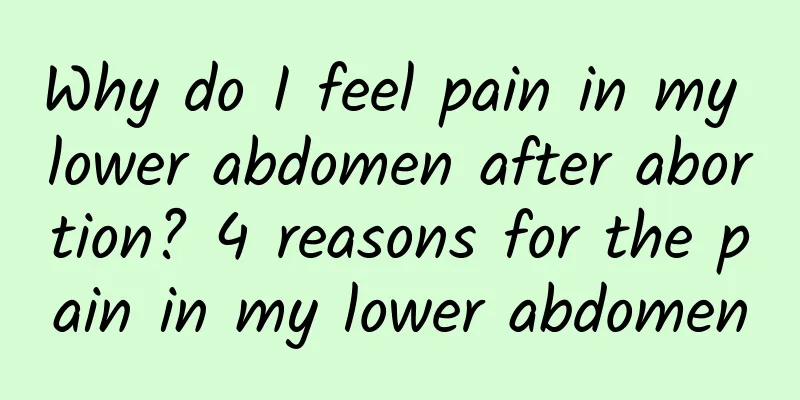What are the symptoms of uterine fibroids? What are the dangers of uterine fibroids?

|
Uterine fibroids are a type of benign uterine tumor with a high prevalence rate. They are more common in women of childbearing age. Uterine fibroids are very harmful. In the early stages of the disease, the patient has no abnormalities or is not obvious, which can easily delay treatment. So, what are the symptoms and hazards of uterine fibroids? Symptoms of uterine fibroids are as follows: 1. Increased leucorrhea. Patients with uterine fibroids will have signs of increased leucorrhea, and some will also produce a large amount of purulent or bloody leucorrhea, accompanied by a foul odor. 2. There is a lump in the abdomen. The patient will feel swelling in the lower abdomen and touch the lump with his hands, accompanied by a feeling in the lower abdomen. 3. Menstrual abnormalities are the most common symptoms of uterine fibroids, which may manifest as prolonged or shortened menstrual cycles, increased menstrual volume, and irregular vaginal bleeding. 4. Compression symptoms: Uterine fibroids can grow forward or backward, compressing other organs in the pelvic cavity, including the bladder, urethra or rectum, causing frequent urination, dysuria, urinary retention or constipation. Uterine fibroids are harmful to women: 1. Infection and suppuration Uterine fibroids can cause pelvic congestion and infection. The infection is mainly the consequence of tumor pedicle torsion, while hematogenous infection is extremely rare. After infection, a few patients will form abscesses in the tumor tissue, and the rest will be suppurative. 2. Adhesion or inflammation. After the subserosal uterine fibroid pedicle is twisted, intestinal adhesion will occur, and then intestinal bacteria will be infected. Inflammatory fibroids will adhere to the uterine appendages, causing suppurative inflammation. On the other hand, fibroids can also cause bacteria to invade other uterine organs, causing gynecological inflammation such as adnexitis and pelvic inflammatory disease. 3. Secondary anemia. Uterine fibroids can cause excessive menstrual bleeding. Over time, it can lead to secondary anemia and even anemic heart disease. In severe cases, patients will experience adverse symptoms such as general fatigue, pale complexion, palpitations and shortness of breath. |
<<: Symptoms of uterine fibroids Will uterine fibroids compress the bladder?
>>: Symptoms of uterine fibroids. Will uterine fibroids cause abnormal leucorrhea?
Recommend
Does a thick endometrium make it difficult to get pregnant?
Does endometrial thickening affect pregnancy? Wha...
How Western Medicine Understands the Causes of Uterine Fibroids
Uterine fibroids, also known as uterine leiomyoma...
Don’t dare to eat after exercise, fearing that it will be in vain and difficult to maintain your body shape? Eat enough nutrition to maintain your body shape and sustain your energy
In recent years, sports have become increasingly ...
Fat zebrafish have amazing uses! New model for screening weight loss pills
Obesity is the biggest invisible killer affecting...
Is it normal for women to have uterine cysts?
Is it normal for women to have uterine cysts? Ute...
What are the essential drugs for treating threatened abortion?
Threatened abortion affects physical health, and ...
People should pay attention to the treatment precautions of cervical hypertrophy
The appearance of cervical hypertrophy will affec...
What are the treatment principles for uterine fibroids? What are the traditional Chinese medicine treatment methods for uterine fibroids?
When there are too many uterine fibroids or the f...
What are the dangers of uterine effusion during pregnancy
What are the hazards of uterine effusion to women...
Auxiliary examination of hyperprolactinemia
The clinical manifestations of hyperprolactinemia...
It’s gold! Moderate drinking of red wine can help menopausal women maintain their bones
From the West to the East, drinking red wine has ...
Excessive menstrual flow is a typical symptom of cervical hypertrophy
Cervical hypertrophy is a common gynecological di...
Are you always craving for food even though you are not hungry? In addition to drinking more water, these 4 things can help you overcome false hunger
How to overcome false hunger 1. You must eat brea...
Understand the types of pelvic inflammatory disease and fight for your health
Pelvic inflammatory disease is a common gynecolog...
How to treat fetal arrest after pregnancy with adenomyosis?
How to treat fetal growth retardation after pregn...









